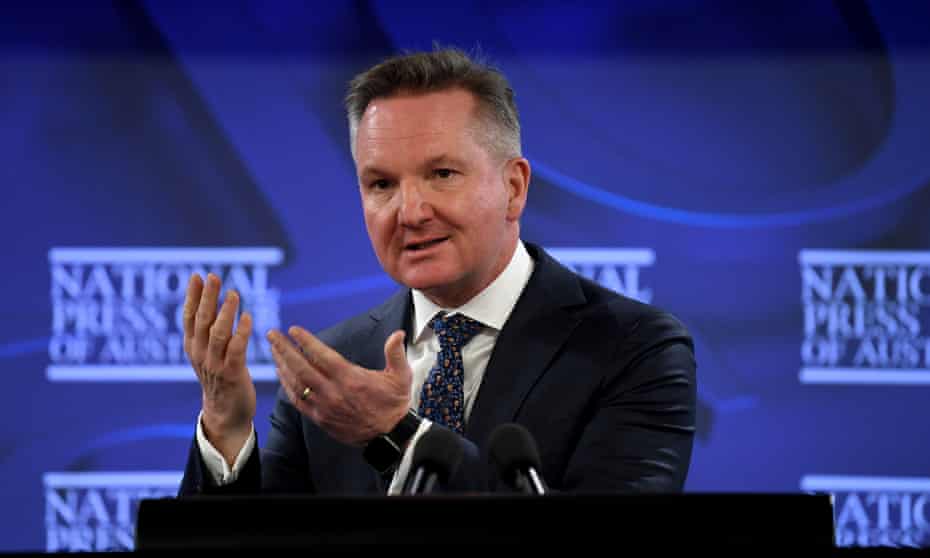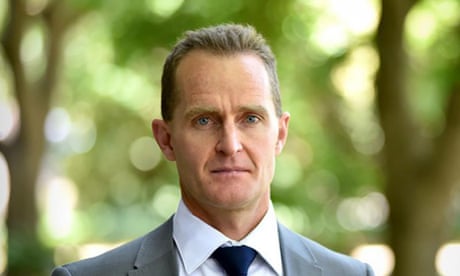Climate change minister says inquiry needed as carbon offset scheme is integral to target of 43% emissions reduction by 2030.

Wed 29 Jun 2022 18.19 AEST
Last modified on Wed 29 Jun 2022 18.21 AESTBowen confirmed the imminent announcement of the review, which is expected on Friday, during a wide-ranging address at the National Press Club in which he outlined the Albanese government’s initial reforms to climate and energy policy and signalled Labor could strengthen efforts to cut emissions from transport with new vehicle emissions standards.
The review into credits follows the former head of the government’s Emissions Reduction Assurance Committee, Prof Andrew Macintosh, going public with his concerns earlier this year.
Macintosh said the growing carbon market overseen by the then Morrison government and the Clean Energy Regulator was “largely a sham” as most of the carbon credits approved did not represent real or new cuts in greenhouse gas emissions.

Bowen said on Tuesday he believed the concerns raised by Macintosh were “substantial and real” and he took them “very seriously”. Given the use of credits will be central in Labor’s policies to achieve its proposed 43% cut in emissions by 2030, the minister said an independent review headed by credible experts was required to ensure confidence in the system.
He said the government had a clear mandate to deliver the policy, under which a scheme introduced by the Coalition would be used to gradually reduce emissions from the country’s 215 biggest industrial facilities. Government data released this week showed greenhouse gas emissions from heavy industry had risen 25.5% since 2005, largely due to an increase in liquified natural gas (LNG) exports.
He said companies covered by the scheme would “have options” in deciding how they would meet emissions reduction targets set by the Clean Energy Regulator and the climate change department. “Offsets will be an important part of that,” he said. “So it’s important we get the governance of the carbon credits right.”
The minister said when the 47th parliament began at the end of July, the government would bring forward legislation enshrining the 2030 target and the commitment to achieve net zero commitment by 2050, and that bill would authorise the Climate Change Authority to report on progress in meeting the targets.
Bowen said the new legislative regime would also require an annual report to parliament by the minister, modelled on the annual Closing the Gap statement, outlining progress – a procedure that would force the opposition “to share its views as well”.
He said he would produce a second piece of legislation in the opening parliamentary weeks cutting tariffs and fringe benefits tax on cheaper electric vehicles, and would start to roll out the government’s electric vehicle strategy.
Bowen on Wednesday left open the option of augmenting the strategy for reducing transport emissions including “further policy options to add to and build on what we have already committed to”.
Asked whether that could mean the introduction of new vehicle emissions standards, which the Morrison government falsely claimed in 2019 was a “war on the weekend”, the minister left that option open.
“We’ll consider all viable options to build on the policy announcements we made and are implementing,” Bowen said.
Vehicle efficiency standards, which would involve setting a target to lower the average emissions from the national vehicle fleet, were considered but rejected by the Coalition government despite a departmental analysis in December 2016 finding the benefits in savings on fuel and reduced emissions would outweigh the costs under all scenarios examined.
Bowen rejected a suggestion that the leaders of G7 countries were slowing their ambition in addressing climate change due to the gas shortage triggered by responses to Russia’s invasion of Ukraine. He said the big democracies had promised to do more to cut emissions while acknowledging gas, a fossil fuel, would “play a role”.
“Our allies, whether it be G7 or EU, are also increasing their ambitions in relation to renewable energy, as they should,” he said. “They’re increasing their medium term targets, they’re increasing their investment in photovoltaics.”
Asked whether Labor’s pre-election claim that its policies would cut an average electricity bill by $275 by 2025 could still be delivered given the recent increase in wholesale power prices, Bowen said “figures will move around” but it was “more important than ever” that it accelerate the rollout of renewable energy as promised. He said having more renewables would put “downward pressure on prices”.
No comments:
Post a Comment